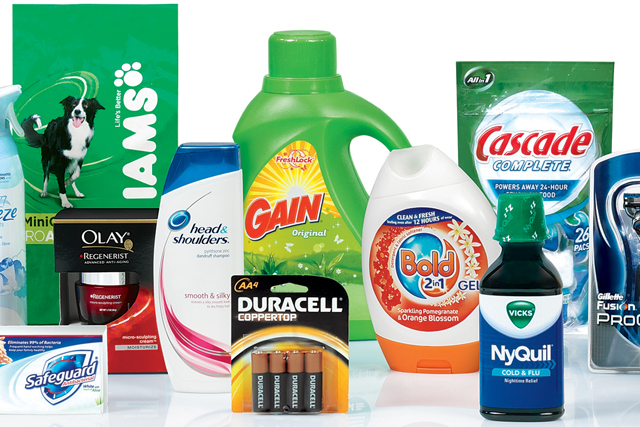
These brands are likely to be as big as a Fortune 500 company in their own right - and if they were kept together would make a company larger than Facebook
Friday’s news that P&G will sell about 100 of their brands, in order to focus more on the top 70-80 brands means that there will be some changes at the 175 year-old FMCG company. Naturally they are not saying which ones will go, but my prediction is that a few well-known and well-loved brands in the UK will be on their way.
In fact, analysts are saying that these brands that are being cut are likely to be as big as a Fortune 500 company in their own right, and if they were all kept together would make a company larger than Facebook.
So if other people can pay good money for these brands, and hopefully make good returns on them, is this a sign of problems at P&G?
My sense is not – and here are my five reasons why I think that this streamlining is probably not a huge gamble for the company:
1. Short-term the move allows significant cost-cutting and improving the bottom line, focusing on the 90% of sales that deliver the 95% of the profit. Investors seemed to like this, with shares rising 3% on the announcement.
Meanwhile, from a marketing point of view, a leaner cost structure is such an important enabler of marketing-led growth via advertising investment.
2. The slightly longer-term is interesting, with a sense that the reduction of the additional activity and complexity allows for significantly better focus - improving the impact and ROI of marketing, R&D and supply chain.
P&G has always been a business where mobilising behind a clear mission and focus is a strength and the Gillette acquisition built on this at a cultural level.
This move will allow for significantly better focus - improving the impact and ROI of marketing, R&D and supply chain. This will be the measure to watch to judge whether it is working for P&G.
In a world where the macro-economic political, economic, social and technological factors seem to be becoming more volatile, this change should free up the whole organisation to focus on the biggest things that have the biggest impact.
This puts pressure on innovation – especially the longer-term game-changing innovation, which generally needs more time and love to nurture to success. I would suggest that this will be the measure to watch, in order to judge whether it is working for P&G.
3. It also reduces potential pressure for P&G to be broken up – whether in true shareholding terms, or in breaking into multiple sales forces for different products segments of the business.
4. If there is a challenge, is it keeping enough of a diversified portfolio to be clearly managing major risks?
But in a week where Diageo suffered an 11% profit decline which some commentators partly attributing that to multiple pressure points across a highly diversified spread of regional brands, P&G looks very solid (if unremarkable) - beating analyst forecasts with 3% profit growth, which AG Lafley claims would have been 4% without the longer tail of their portfolio.
5. P&G also suggested that they are seeing the historical story that "more choice means more consumer spend" coming to the end of its flavour/flanker/line extension life.
 The behavioural economists will cheer... and perhaps so will consumers and grocers (offline and online alike) as we get simpler, more convenient and cheaper ranges of products to meet our needs.
The behavioural economists will cheer... and perhaps so will consumers and grocers (offline and online alike) as we get simpler, more convenient and cheaper ranges of products to meet our needs.
If this is universally applied by retailers for new SKUs, marketers will have to move away from the glib "new & improved" stickers and put more hard-earned miles into understanding and innovating to truly improve the lives of consumers.



.jpg)
.jpeg)
